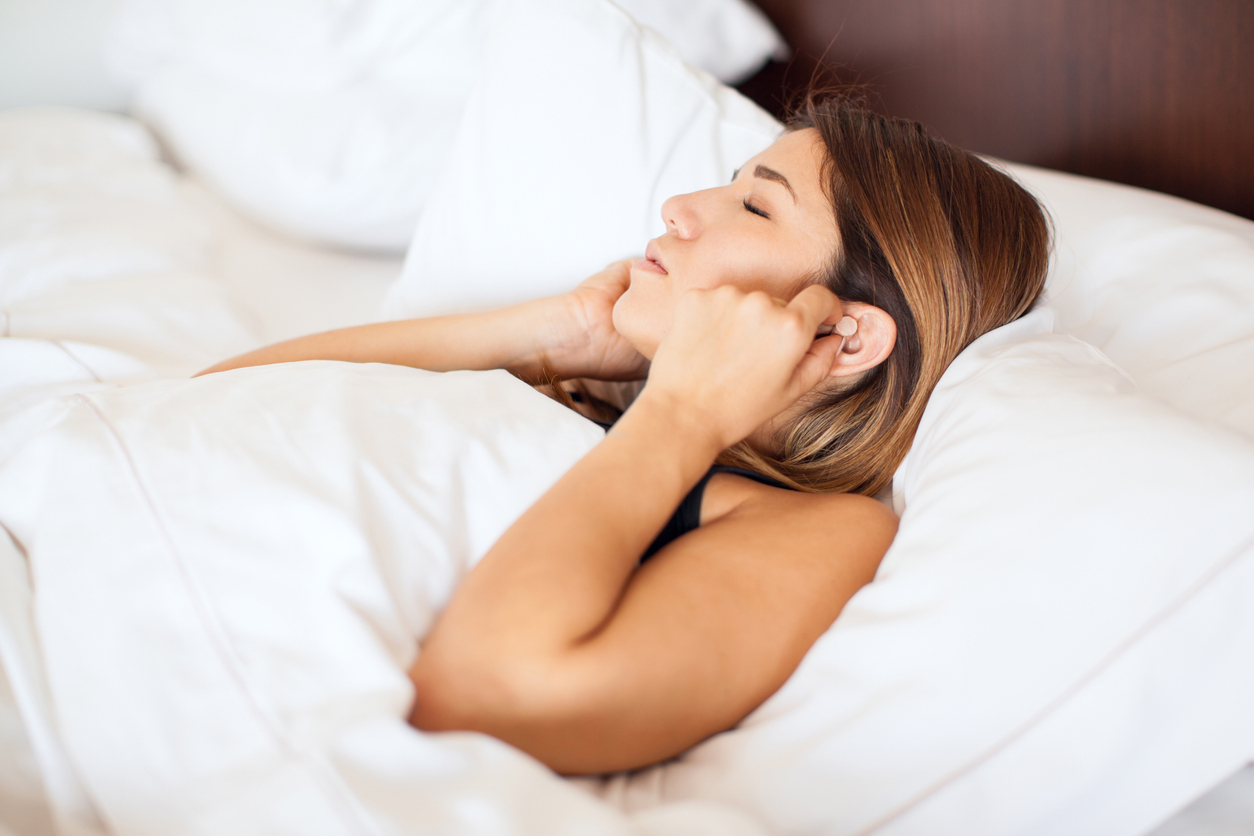If your partner snores, your neighbors are noisy or you live near a concert venue like The Fillmore Silver Spring, getting a good night’s sleep can feel impossible. Many people turn to earplugs for relief but worry that they aren’t safe for daily use. Let’s explore how earplugs affect ear health and what you can do to rest soundly while protecting your ears.
How Does Frequent Earplug Use Impact Your Ears?

In general, earplugs are a safe and effective way to block unwanted noise. They can even improve your overall health by promoting deeper, more restful sleep. However, using them consistently can sometimes lead to earwax buildup.
Your ears expel old wax on their own, but regular earplug use can disrupt this process, causing blockages, discomfort or temporary hearing issues. Muffled hearing from an earwax blockage is called conductive hearing loss. While this isn’t always a problem, it’s important to be mindful of the signs of earwax buildup, including muffled hearing, tinnitus, a feeling of fullness in the ear and ear pain.
Fortunately, earwax blockages don’t mean you have to give up your sleep. By choosing the right type of ear protection and practicing proper ear hygiene, you can enjoy restful sleep without worry.
Best Noise Protection for Sleep
Not all earplugs are created equal; some options are better suited for sleep than others. A couple of options to consider include:
- Custom earplugs. Custom earplugs are designed to fit your unique ear shape and provide a snug but comfortable seal. Unlike traditional foam earplugs that may push wax deeper, these are tailored to offer protection without going too deep into the ear canal, making them more suitable for nightly use.
- Silicone earplugs. Silicone earplugs are a lightweight option that is small, flexible and gentle on the ears. While they may not block all noise, they offer a comfortable middle ground for those sensitive to bulkier options.
Preventing Earwax Buildup
To help prevent earwax buildup, clean your earplugs daily and gently wash your outer ears with a damp rag. Do not attempt to remove wax with cotton swabs or other small objects, as these can lead to ear canal damage and greater wax production.
If you frequently develop earwax blockages, schedule an appointment with your provider for a professional cleaning and prevention consultation. They may recommend earwax dissolving drops and suction with a bulb syringe if your ears require regular cleaning.
For more information on caring for your ear and hearing health, contact Hearing Center Silver Spring today to schedule an appointment with one of our specialists.